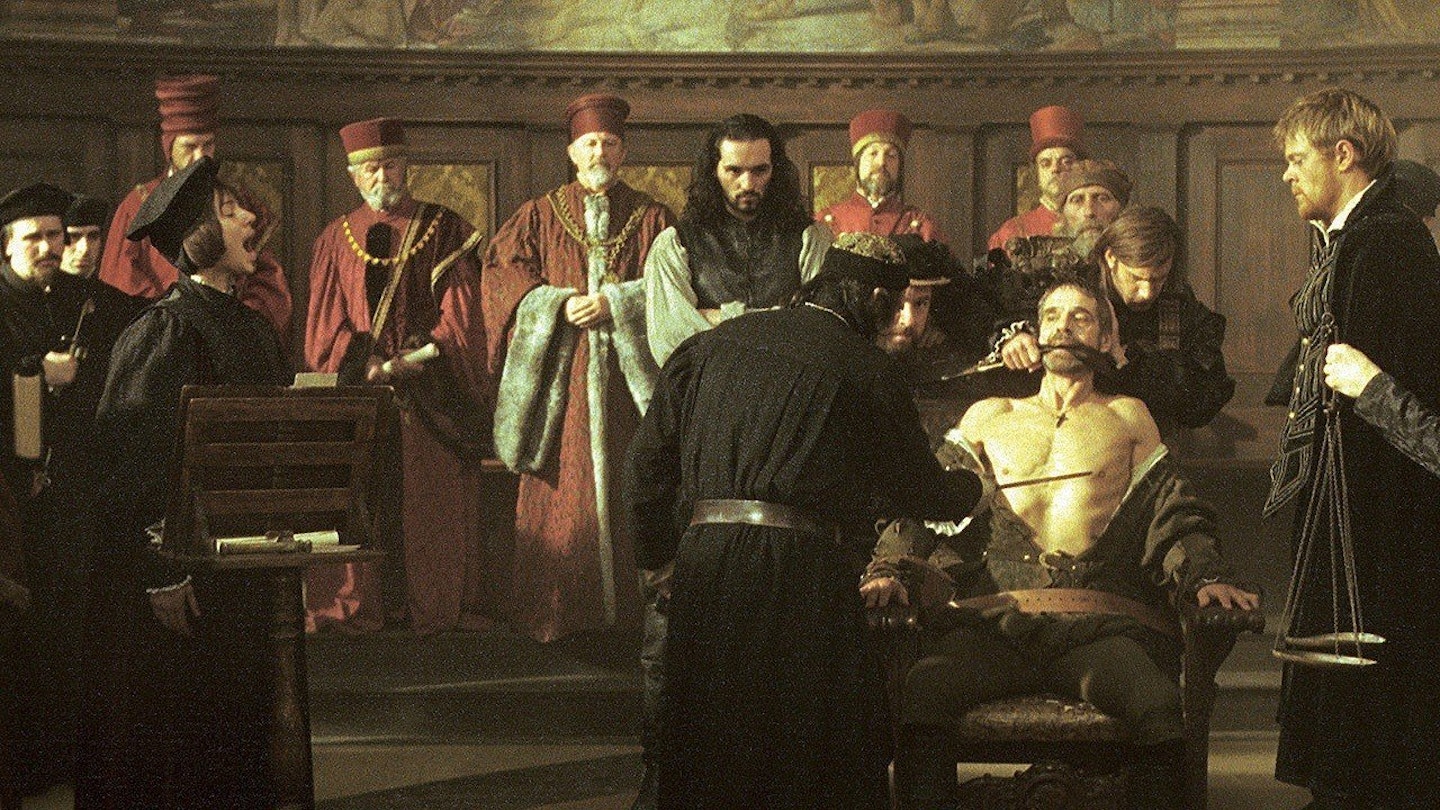Shakespeare, scholarly souls are prone to exclaim, is a writer for all seasons. Despite their period settings, his plays roil with subtexts and are as applicable today as they were at the lantern-lit Globe. So this seething morality tale of racial prejudice and greed has been adapted by Michael Radford to mirror the vices and cruelties of current times. As Radford's camera prowls the backstreets of Venice, we're swiftly informed how the Jews are coldly repressed, allowed only to deal in money and locked away in the 'geto' (ghetto) after dark. Shylock, who is visibly shunned and spat upon, is understandably a bitter man.
The play has always teetered between being a study of anti-Semitism and actually feeling anti-Semitic - a true product of its times - and Radford penetrates the dilemma with skill, delivering an incisive adaptation in the succulent, woody shades of Renaissance art and depicting a painted city where the rot has set in. Yet his film never sings. While he gauges the emotional turmoil intelligently, he treats the lighter, softer notes of the story -the familiar Shakespearean tableau of dainty misunderstandings, swooning romance and inevitable cross-dressing - as throwaway mechanics, impatiently awaiting the return of his leading man.
Pacino's Shylock, as you might expect, is the best reason to step inside. The character's always been a tough assignment, often reduced to a proto-Jackie Gleason in a smock, but Pacino revels in the money-lender's contradictions, playing him fierce and sympathetic, both victim and molester. It's a complex performance made effortless, as if those long-winded lines were born on his lips, not rehearsed from a well-thumbed Arden. While De Niro languishes in self-parody, Pacino remains as edgy and indelible a presence as he was as a young firebrand.
It's a shame that the more youthful cast members appear stiff and obvious by comparison. Fiennes, Collins and a well-meant Kris Marshall look as if they're bogged down with A-Level revision, leaving only Irons to hold any kind of candle to the main event.
